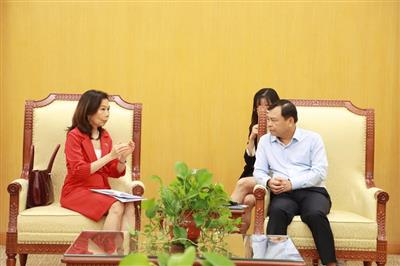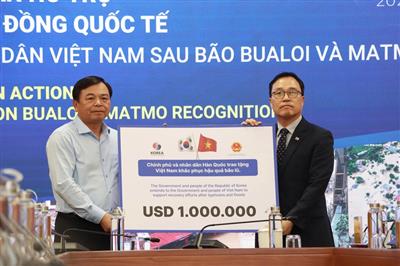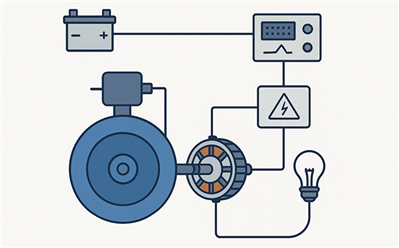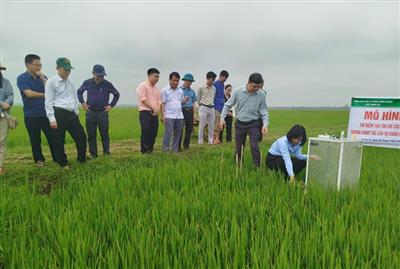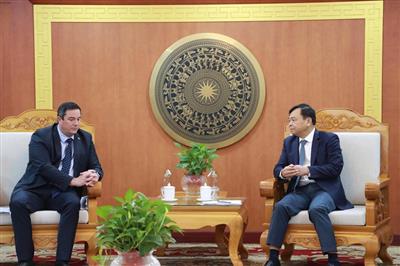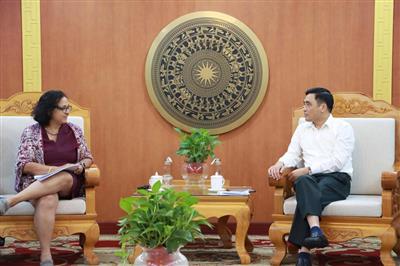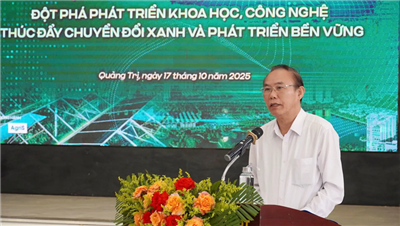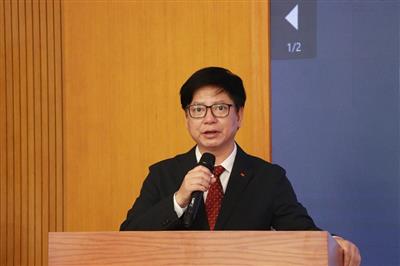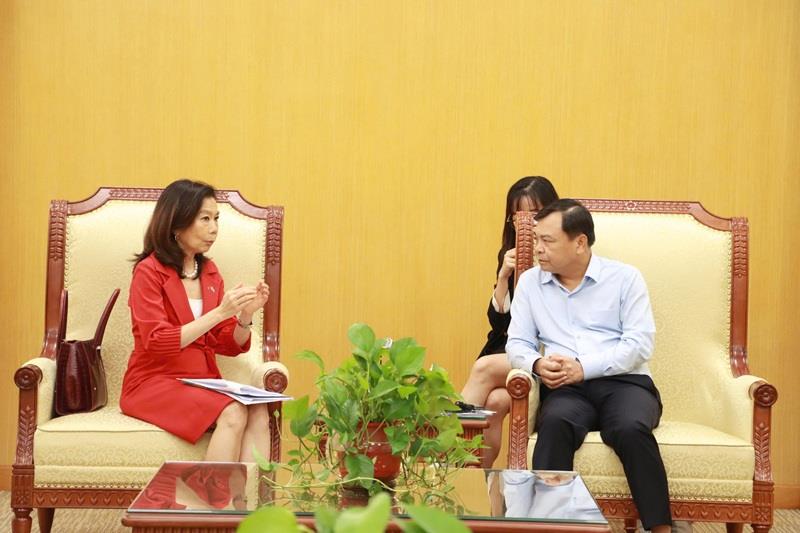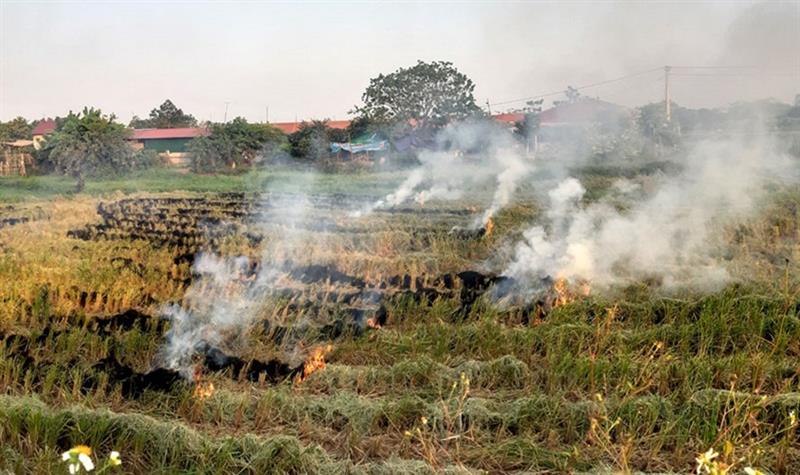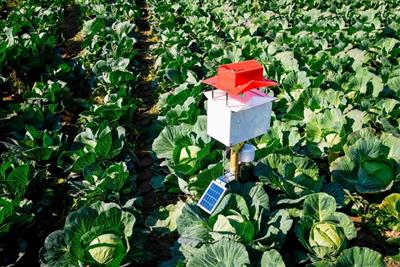
Vietnam - South Korea: Advancing priority cooperation areas in climate change
21/06/2024TN&MTOn June 20, the first online meeting of the Vietnam - South Korea Joint Working Group on Climate Change Cooperation was held. The meeting was co-chaired by Deputy Minister of Natural Resources and Envitonment of Vietnam Le Cong Thanh and Ms. Hyoeun Jenny Kim, Ambassador and Deputy Minister for Climate Change in the Ministry of Foreign Affairs of the Republic of Korea.
Vietnam's delegation included representatives from the Ministries of Natural Resources and Environment (MONRE), Foreign Affairs, Transport, Industry and Trade, Finance, Construction, Planning and Investment, and Agriculture and Rural Development.
South Korea's delegation included representatives from the Ministries of Foreign Affairs, Trade, Industry and Energy, Environment, ICT, Infrastructure and Transport, Agriculture, Food and Rural Affairs, Oceans and Fisheries, the Korea Forest Service, and the South Korean Embassy in Hanoi.

Deputy Minister Le Cong Thanh delivered opening speech at the meeting
In his opening remarks, Deputy Minister Le Cong Thanh highlighted that at COP 26, leaders from Vietnam, South Korea, and over 140 other countries pledged to reduce emissions to achieve net zero by 2050. To fulfill these commitments, Vietnam has adopted the National Climate Change Strategy for 2021-2030, with a vision to 2050, which outlines adaptation measures and emission reduction activities. The 2021 Framework Agreement with South Korea is a significant milestone in these efforts.
The first meeting aimed to identify potential cooperation areas with South Korea’s support for Vietnam in implementing its Nationally Determined Contributions (NDC). Deputy Minister Le Cong Thanh emphasized that Vietnam could benefit from South Korea's experience in building and operating a carbon market.

Ms. Hyoeun Jenny Kim, Hyoeun Jenny Kim, Ambassador and Deputy Minister for Climate Change, Ministry of Foreign Affairs, along with representatives from various South Korean ministries and sectors, attended the meeting online.
Deputy Minister Hyoeun Jenny Kim emphasized the active participation of various ministries and sectors from both countries in implementing the Framework Agreement. She mentioned that South Korea, in 2021, became the 14th country to enact a Basic Act on Carbon Emissions Reduction, aiming to cut emissions by 40% from 2018 levels by 2030. In April 2023, South Korea issued a Basic Plan for Carbon Neutrality and Green Growth to support future NDC targets.
Despite GDP growth, South Korea has reduced greenhouse gas emissions by developing low-carbon energy sources like nuclear and renewable energy. Deputy Minister Kim remarked that South Korea is on track to triple its renewable energy capacity by 2030 and will submit its first Paris Agreement implementation report to the UN on time.

Ministry representatives exchanged cooperation proposals with their South Korean counterparts
Deputy Minister Le Cong Thanh outlined Vietnam’s NDC commitments, including a 15.8% reduction in greenhouse gas emissions by 2030 from the business-as-usual scenario. Vietnam's NDC specifies reduction measures in five sectors: energy, agriculture, land use, waste management, and industrial processes. Relevant ministries must develop sector-specific emission reduction plans. The MONRE is drafting amendments to Government Decree No. 06/2022/NĐ-CP on emissions reduction and ozone layer protection, essential for managing carbon credits and establishing a carbon market in Vietnam.
Vietnam is preparing for COP 29, hoping for new, clear, and transparent climate finance targets and consensus on rules for carbon credit exchange under Article 6 of the Paris Agreement. Deputy Minister Le Cong Thanh expressed hope that South Korea will share its experience in operating a carbon market to help Vietnam expedite the development of its domestic carbon market.

During the meeting, Vietnamese ministries proposed various cooperation activities. The Ministry of Industry and Trade requested South Korea's experience in establishing a Measurement, Reporting, and Verification (MRV) system for emission reduction actions in energy and industry.
The Ministry of Construction sought technical support for low-carbon construction projects and materials. The Ministry of Transport suggested assistance in green construction technology, climate change adaptation at ports, and standards for electric vehicles. The MONRE proposed learning from South Korea's CO2 storage technology, hydrogen, and green ammonia production, and Carbon Capture, Utilization, and Storage (CCUS) technology. The Ministry of Foreign Affairs urged South Korea support Vietnam in hosting the 2025 P4G Summit and expanding the innovation pillar.
South Korean representatives discussed support for Vietnamese ministries and proposed nine greenhouse gas emission reduction projects, including non-fired brick production, rooftop solar power, biomass fuel use, HFC recycling, biochar, wind power operation, and rice husk biomass power. Deputy Minister Kim noted ongoing discussions on cooperation mechanisms, project approval, and carbon reduction result distribution.
The South Korean government is keen on encouraging private enterprises to join projects with Vietnam under Article 6 of the Paris Agreement. Guidance documents are expected soon.
Deputy Minister Le Cong Thanh appreciated South Korea's proactive drafting of guidance regulations and urged continued exchanges between ministries. He suggested that technical teams from both countries work on specific guidelines and evaluate the nine proposed projects, drawing lessons for implementing Article 6 of the Paris Agreement.
Ngoc Huyen (NRE Newspaper)




